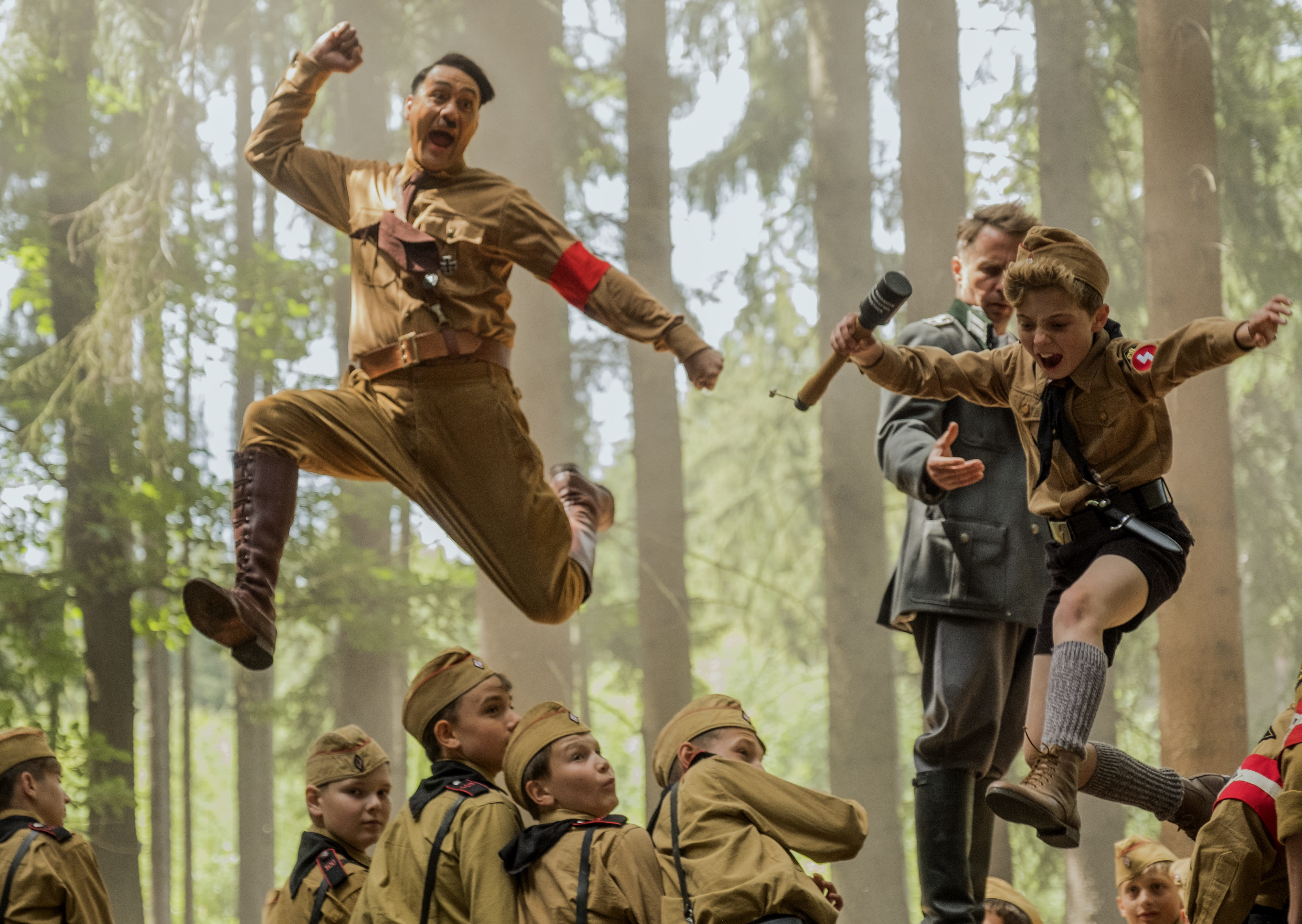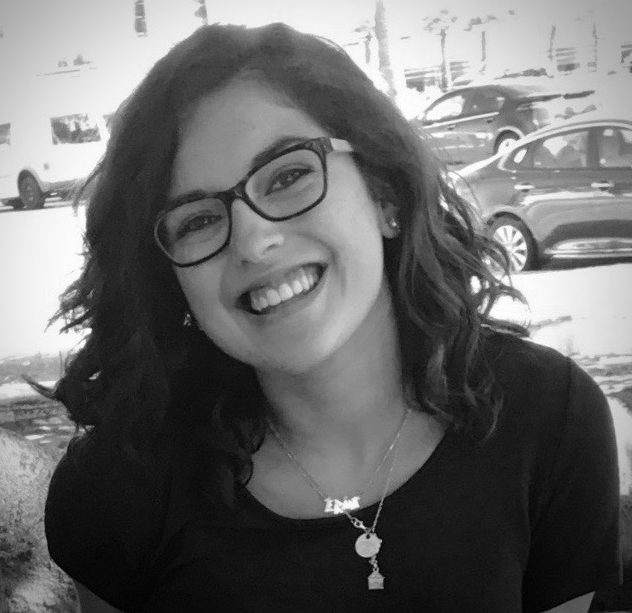 Taika Waititi and Roman Griffin Davis in the film “Jojo Rabbit” Photo by Kimberley French. 2019 Twentieth Century Fox Film Corporation
Taika Waititi and Roman Griffin Davis in the film “Jojo Rabbit” Photo by Kimberley French. 2019 Twentieth Century Fox Film Corporation New Zealand Jewish director Taika Waititi’s “Jojo Rabbit” takes the tropes of World War II movies and flips them on their head. Tipping his hat to his cinematic heroes Mel Brooks, Stanley Kubrick and Charlie Chaplin, Waititi re-visits the WWII narrative and makes it relevant to today.
The film, which won the People’s Choice Award at this year’s Toronto International Film Festival, follows a 10-year-old German boy named Jojo (Roman Griffin Davis), who so desperately wants to be Adolf Hitler’s right-hand man that he joins the Nazi youth movement. His world becomes increasingly complicated when he discovers that his mother, Rosie (Scarlett Johansson), is hiding a beautiful Jewish teenager named Elsa (Thomasin McKenzie), in their attic. While Jojo confronts his nationalist upbringing, his imaginary friend Adolf Hitler (played by Waititi) is by his side helping him navigate … sort of.
Speaking with the Journal, Waititi said although he initially had no intention of playing Hitler, he ultimately concluded it would be the best form of revenge against the man responsible for the deaths of more than 6 million Jews.
Playing the Fuhrer “was very easy for me,” Waititi said, “because it wasn’t playing Hitler at all. The main thing I was trying to do is figure out what was this guy who was being conjured through the mind of a 10-year-old, what would he be like? It’s got to be this idiotic, clown kind of character. It’s a weird best friend. I wanted to show the conflict within Jojo through that.”
The film takes place in Germany toward the end of the war. As the Third Reich crumbles, so does Jojo’s perception of his imaginary friend. Jojo’s infatuation with Elsa also provides conflict.
“[Hitler] was a God to [the Germans] and there’s all that footage of fans reaching out to him and screaming and fainting, which is exactly like Beatlemania.” — Taika Waititi
Waititi told McKenzie to watch the 1980s-cult-classic “Heathers” to get her into the mindset that Elsa was “the most popular girl in school” before she was forced to go into hiding simply for being Jewish.
Waititi spent several months researching anti-Semitic stereotypes and noted, “It’s not something anyone really wants to Google. Nobody enjoyed having those books around on set or having a boy’s bedroom surrounded by the paraphernalia because it’s super uncomfortable. But what was cool was we ceremoniously destroyed that stuff [at] the end of the shoot.”
Some may view the film as off-putting, especially in the first few scenes where archival footage of real-life German citizens screaming and cheering for Hitler is played alongside The Beatles’ “I Want to Hold Your Hand.” Other shocking moments include burning books in the middle of the forest. Waititi said he wanted to emphasize how manipulative and idolized the Nazis were.
“[Hitler] was a God to [the Germans] and there’s all that footage of fans reaching out to him and screaming and fainting, which is exactly like Beatlemania,” he said. “He was the biggest pop star in the world at the time. He was extremely famous for the rhetoric and his performances in the way he could work those crowds. You have to acknowledge that that is why their country got whipped into such a frenzy.”

However, in “Jojo Rabbit,” there is one German who secretly resists the Nazi party — Jojo’s mother. Rosie champions love, bravery and humor in Jojo’s life while her husband is away fighting in the war.
Waititi said his own mother played a large role in shaping how he directed Johansson’s performance. Waititi’s mother, whose Russian Jewish family immigrated to New Zealand in the 1900s, introduced “Caging Skies” to him, the book upon which the film is based.
Although the film combines darkness and comedy, Waititi, who wrote the script in 2011, hopes to shed light on the 21st-century hate growing around the world.
“I tried to see how many conflicts there had been since World War II, after they said, ‘Well we should never fight again. Let’s never forget what happened.’ I gave up because s— happened since then,” Waititi said. “I think about the children and all of those conflicts, and [children] don’t really know why people are fighting. We should be mentoring them and being those beacons of hope. How are they supposed to grow up having tolerance or hope in humanity if this is the chaos they see?”
Although Waititi wants audiences to enjoy the film, he wants adults to go home and “hug their kids. I wrote this to highlight how children see grown-ups,” he said. “How crazy grown-ups are during conflict. I couldn’t predict that it would be more relevant now. I like how we need to better serve children and guide them to a better future.”
“Jojo Rabbit” opens in theaters Oct. 18.























 More news and opinions than at a Shabbat dinner, right in your inbox.
More news and opinions than at a Shabbat dinner, right in your inbox.